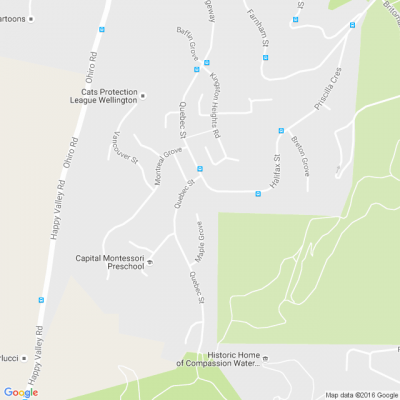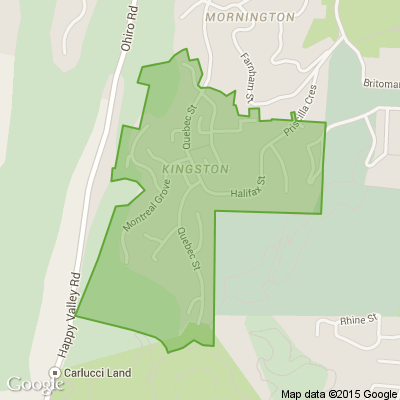A warning about 'Task Scams' in Wellington
Police are aware of reports emerging in the Wellington police district where people have lost money though a “Task Scam”. A Task Scam is a form of online fraud where individuals are deceived into completing tasks under the belief they are in employment.
Sergeant Rowen Steenkamp, Wellington Police says “Most online scams request money or personal information, Task Scams are more deceptive, requiring you to complete activities that seem easy or attainable. These include such things as, writing a specified number of online reviews for consumables like luxury travel packages, household products and cosmetics.
Sergeant Steenkamp says at least eight cases have been reported to date in Wellington including some involving significant financial losses, which includes two cases where the victims have lost in excess of $100k (137,000 and 105,000).
“In the recent cost of living crisis, we’ve seen an increase in people having second jobs or side hustles. As a result, what is known as a Task Scam has emerged as a particularly deceptive threat.
“These scams imitate legitimate earning opportunities, with the ability to seemingly work around your lifestyle when and how you please.”
Wellington-based man *Peter is speaking out to help prevent others falling into the same trap. *Peter lost nearly $22,000 to a Task Scam last month. He was lured in by the chance of some easy money and regrets his decision.
*Peter says it’s the first time he’d ever been scammed and never expected he would fall for it.
“I have lost a significant amount of my life savings, I had to stop ‘working the task’ because I had no money left.
“But then my (fake) “supervisor” encouraged me to borrow money from a friend, or to apply for a loan from a bank, or online loan website.
“They build trust, they monitor your progress like any other good manager would. They offer advice, before requesting more and more financial investments to enable you to move through to reviewing higher value items, it’s very convincing.”
“I urge people to be very careful online and avoid any schemes which offer easy cash,” he says.
𝐖𝐡𝐚𝐭 𝐢𝐬 𝐚 𝐓𝐚𝐬𝐤 𝐒𝐜𝐚𝐦?
Scammers are using various online platforms, from reputable job websites to social media channels, to unsolicited approaches on chat platforms.
“The scam operates on the allure of easy money. These offers typically promise high returns for simple tasks, instantly sounding appealing. In recent cases we have seen people offered $200-500 for 30 online product reviews, with higher-end items such a cruises claiming to provide even higher rates of commission,” says Sergeant Steenkamp.
The victim is assigned a manager who contacts them via Whatsapp, Telegram or Messenger using spoofing websites.
Spoofing is where someone disguises an email address, phone number, or website URL to appear to be from a local, trusted source.
The most enticing piece of these scams is the lure of easy money. Victims are promised hefty commissions upon completion of tasks. However, in most cases, they pay large sums of money to completing ‘training’, or to enable them to progress to the next task.
These are more often paid into crypto wallets or offshore bank accounts and the money is never seen again,” says Sergeant Steenkamp.
𝐂𝐨𝐧𝐬𝐞𝐪𝐮𝐞𝐧𝐜𝐞𝐬 𝐟𝐨𝐫 𝐕𝐢𝐜𝐭𝐢𝐦𝐬:
The consequence of falling for a task scam is often huge financial loss. Recently, we have seen losses ranging from $7000 - $120,000. Globally, victims are thought to have lost more than $185 million.
In addition, the emotional and psychological distress, the feelings of betrayal and deception can have a lasting effect.
Remember this advice to help keep yourself safe:
• Confirm job offers: Thoroughly research the company and confirm the job exists, especially if you are approached via social media or chat platforms.
• The saying rings true: If it seems too good to be true, it usually is. Be cautious of earning high money for little effort.
• Ask other opinions: Ask your friends or whanau their thoughts on the job offers, a second set of eyes my see something you don’t.
If you are in the unfortunate position of being a victim of a scam, please report the matter to Police.
Take the chance to upskill yourself on scam awareness, check for further information on the Netsafe website: netsafe.org.nz...
*Peter is not the victim’s real name

We're talking new year resolutions...
Tidying the house before going to bed each night, meditating upon waking or taking the stairs at work.
What’s something quick, or easy, that you started doing that made a major positive change in your life?

⚠️ DOGS DIE IN HOT CARS. If you love them, don't leave them. ⚠️
It's a message we share time and time again, and this year, we're calling on you to help us spread that message further.
Did you know that calls to SPCA about dogs left inside hot cars made up a whopping 11% of all welfare calls last summer? This is a completely preventable issue, and one which is causing hundreds of dogs (often loved pets) to suffer.
Here are some quick facts to share with the dog owners in your life:
👉 The temperature inside a car can heat to over 50°C in less than 15 minutes.
👉 Parking in the shade and cracking windows does little to help on a warm day. Dogs rely on panting to keep cool, which they can't do in a hot car.
👉 This puts dogs at a high risk of heatstroke - a serious condition for dogs, with a mortality rate between 39%-50%.
👉 It is an offence under the Animal Welfare Act to leave a dog in a hot vehicle if they are showing signs of heat stress. You can be fined, and prosecuted.
SPCA has created downloadable resources to help you spread the message even further. Posters, a flyer, and a social media tile can be downloaded from our website here: www.spca.nz...
We encourage you to use these - and ask your local businesses to display the posters if they can. Flyers can be kept in your car and handed out as needed.
This is a community problem, and one we cannot solve alone. Help us to prevent more tragedies this summer by sharing this post.
On behalf of the animals - thank you ❤️








 Loading…
Loading…
















